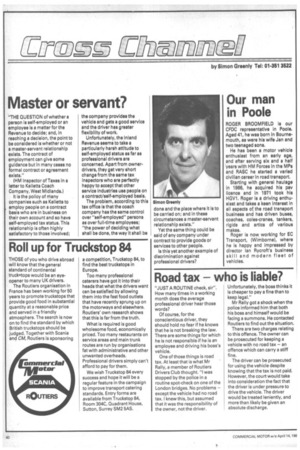Master or servant?
Page 42

If you've noticed an error in this article please click here to report it so we can fix it.
"THE QUESTION of whether a person is self-employed or an employee is a matter for the Revenue to decide; and, in reaching a decision, the point to be considered is whether or not a master-servant relationship exists. The contract of employment can give some guidance but In many cases no formal contract or agreement exists."
(NM Inspector of Taxes in a letter to Kelletts Coach Company, West Midlands.) It Is the policy of many companies such as Kelletts to employ people on a contract basis who are in business on their own account and so have self-employed tax status. This relationship is often highly satisfactory to those involved; the company provides the vehicle and gets a good service and the driver has greeter flexibility of work, Unfortunately, the Inland Revenue seems to take a particularly harsh attitude to self-employed status as far as professional drivers are concerned, Apart from ownerdrivers, they get very short change from the same tax inspectors who are perfectly happy to accept that other service industries use people on a contract/self-employed basis.
The problem, according to this tax office is that the coach company has the same control over "self-employed" persons as over full-time employees; "the power of deciding what shall be done, the way it shall be done and the place where it Is to be carried on; and in these circumstances a master-servant relationship exists," Yet the same thing could be said of any company under contract to provide goods or services to other people.
Is this yet another example of discrimination against professional drivers?




























































































